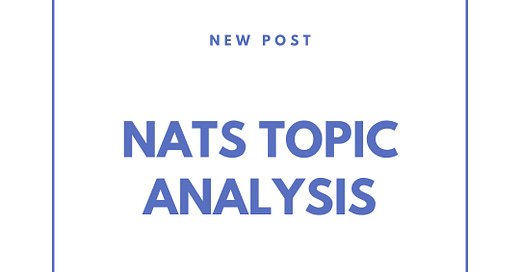NSDA Nationals 2025 Public Forum Topic Analysis
Resolved: On balance, in the United States, the benefits of presidential executive orders outweigh the harms.
Background
This topic presents some interesting challenges that are pretty typical for NSDA Nationals resolutions. Executive orders are one of those presidential powers that everyone talks about but few people really understand. They've been used to free enslaved people, intern Japanese Americans, create national parks, and respond to pandemics. The breadth of their impact is remarkable, though teams should be prepared for the reality that impact ground will be relatively light compared to other topics.
What makes this resolution particularly tricky is that it forces us to wrestle with mostly procedural questions about democracy rather than clear-cut life and death scenarios. Should one person be able to make sweeping policy changes? When is swift action worth the risk of bypassing democratic processes? These tensions matter, but they don't generate the massive impact scenarios that many debaters are used to running. Teams will need to be exceptionally persuasive and focus heavily on timeframe and probability weighing rather than relying on magnitude to win rounds.
Affirmative Arguments
Emergency Response
The affirmative's strongest position lies in demonstrating how executive orders enable responsive governance during critical moments. When natural disasters strike or security threats emerge, the federal government must coordinate resources and implement solutions rapidly. Executive orders provide the mechanism for presidents to direct federal agencies, allocate emergency resources, and establish clear chains of command without waiting for lengthy congressional processes. Beyond crisis situations, executive orders help presidents manage the vast federal bureaucracy more effectively, ensuring that agencies. This naturally is a large magnitude impact. When emergencies can be responded to quicker, lives are saved and weighing becomes a bit easier. operate according to consistent principles and priorities rather than operating in isolation.
Constitutional Authority
Executive orders reflect the constitutional design that grants presidents specific administrative powers while holding them accountable to national constituencies. Presidents possess unique legitimacy as the only officials elected by voters nationwide, giving them both the authority and responsibility to provide national leadership on pressing issues. When Congress cannot or will not act on matters within executive jurisdiction, presidential action through executive orders ensures that governance continues rather than stalling completely. This argument works best when teams focus on areas where presidents have clear constitutional authority and where executive orders implement rather than create policy frameworks.
Negative Arguments
Institutional Balance
The negative arguments mainly revolve around constitutional structure and the careful balance of powers that defines American government. Executive orders, when used extensively, can circumvent the legislative process that ensures diverse representation and thorough deliberation on major policy questions. Congress exists not merely as a hurdle to presidential action but as a vital institution that incorporates multiple perspectives, regional interests, and minority viewpoints into policymaking. When presidents rely heavily on executive orders, they risk creating a system where national policy reflects the preferences of a single individual rather than the broader democratic consensus that legislative processes are designed to produce. This decline in democracy can be impacted out a few ways. The easiest, but potentially most difficult to warrant, is by drawing parallels between failed democracies. If you can make the point that an abundance of executive orders waters down democracy, then you can gain some access to those impacts, but it will be a stretch. If that’s not your favorite path then you can go for a general stability path and explain how stable governance via checks and balances is more beneficial to a country than the potential for autocratic rule.
Court Clog
Executive orders create substantial strain on the judicial system while generating uncertainty about legal and regulatory frameworks. Courts face increasing caseloads as executive orders are challenged, defended, modified, and reinterpreted through litigation. This judicial burden diverts resources from other important legal matters while forcing courts into policy disputes they are not well equipped to resolve. More fundamentally, the reversible nature of executive orders creates legal instability that undermines effective planning and implementation across both public and private sectors. Businesses struggle to make investments when regulatory frameworks can change dramatically with each administration, while individuals and communities affected by executive orders face ongoing uncertainty about their status and rights. A lot of past topics have had court clog arguments, so check the wiki for any resolution that seems applicable. I’m pretty sure Southlake RY ran court clog on at least a few topics last season if you want to start there.
Nats is a difficult tournament, not necessarily just the competition itself, but also the number of rounds. If this is your first time going, enjoy the experience. There are teams from all across the country that you may never see again, so try to make some friends. If this is your last time, enjoy yourself even more. Debate is a transformational activity that takes much more work than many other extracurriculars. Winning or losing won’t define your debate career, so do your best and have a good time.



